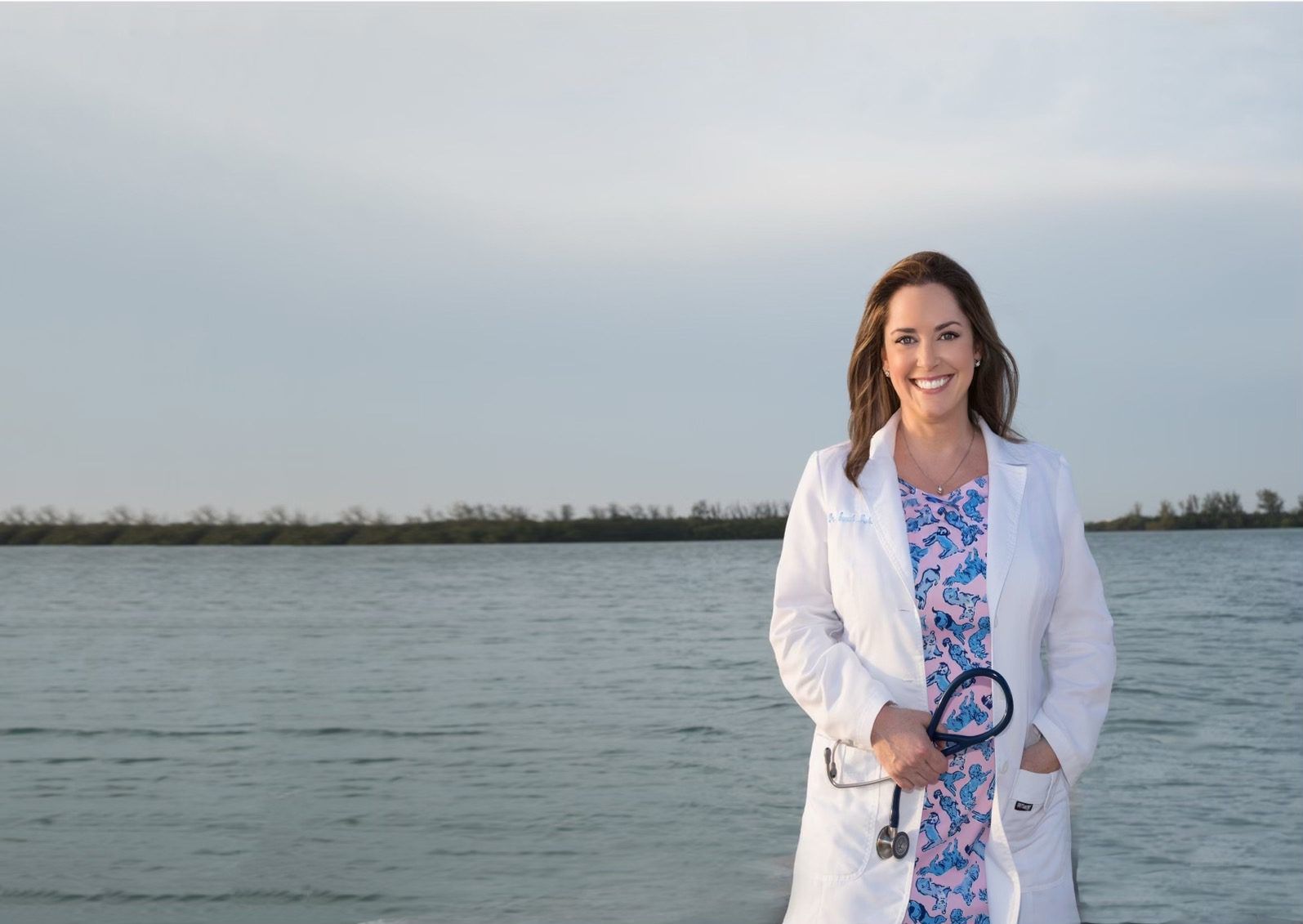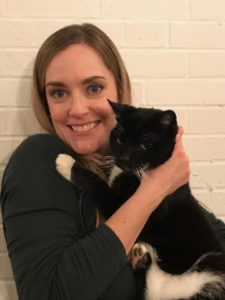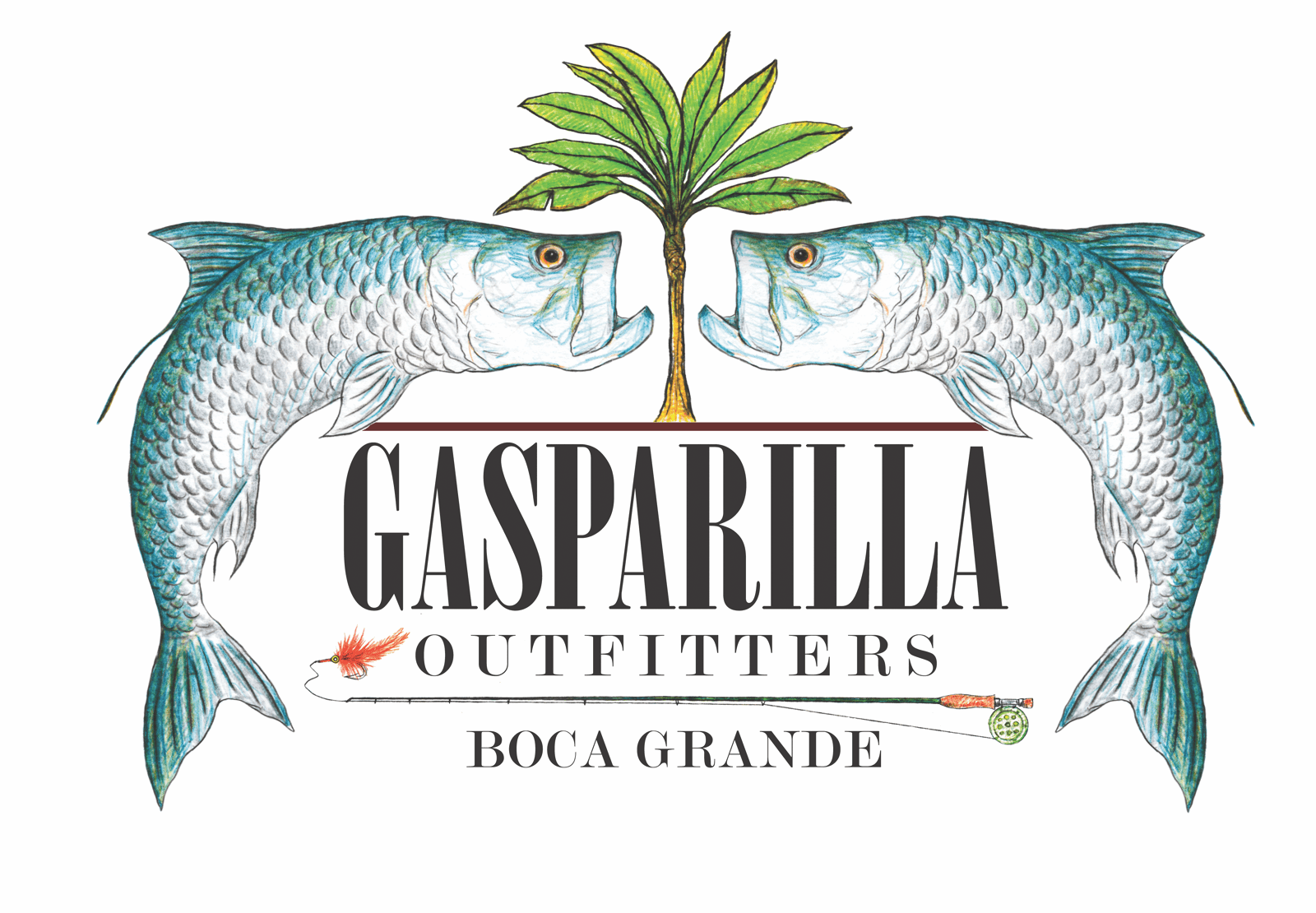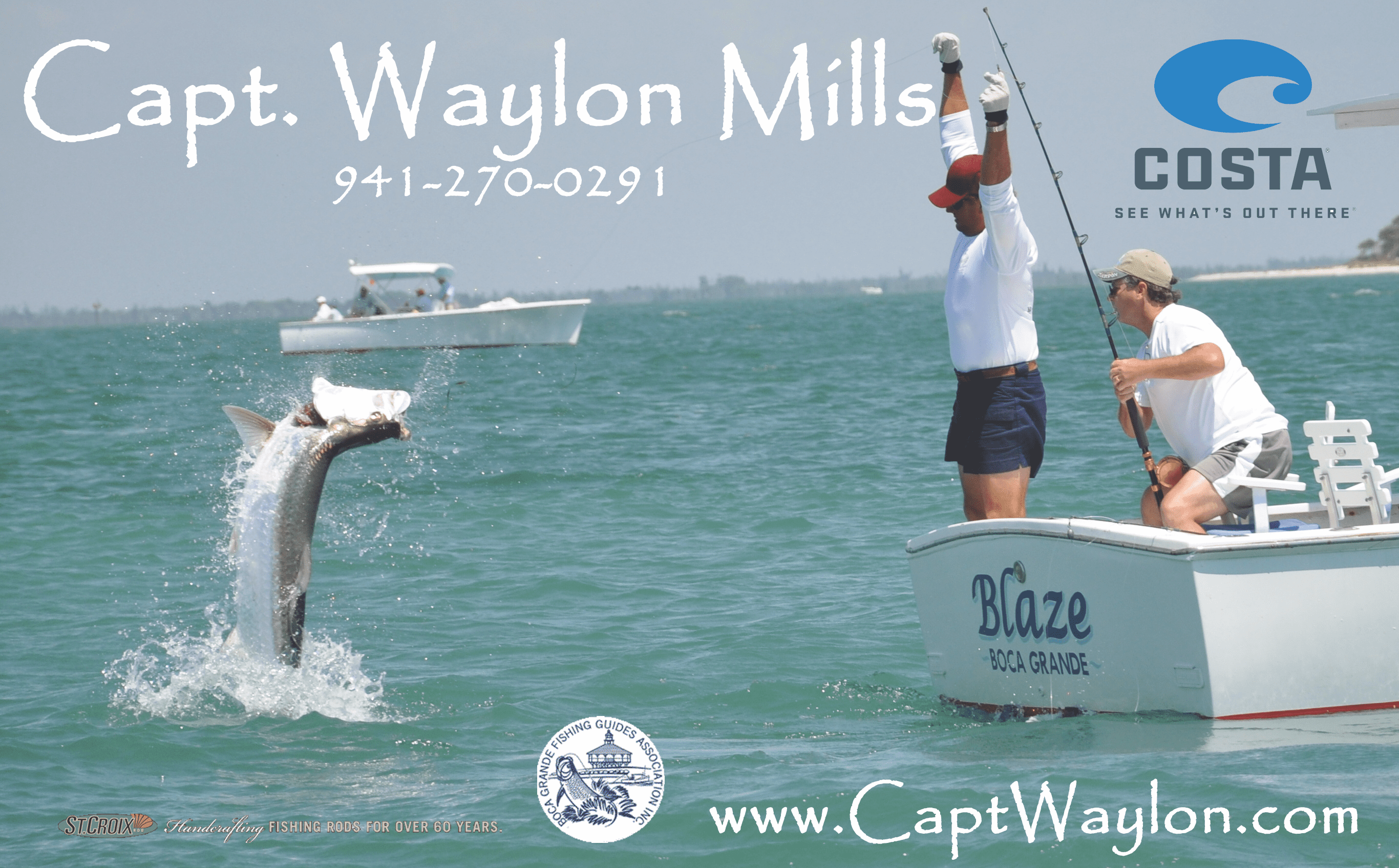IN THE SPOTLIGHT: Dr. Sarah Babcock

“You only need to look in the news to see concerns about influenza, food safety or red tide to realize how much our health and safety are tied to animals, plants and our shared environment.”
Dr sarah babcock
For most people a pet is a family member, and medical care is important. Like many human members of our families, though, some pets do not like going to the doctor, even when it is in their best interest. If you have such a pet, make a note of Dr. Sarah Babcock’s email address. She lives in Boca Grande and makes house calls.
In fact, making house calls is one of the primary ways she still works clinically with animals. These visits are only available to residents of Boca Grande, and they do not include emergency care situations. For ongoing care or diagnostic work, however, she provides an option that reduces the struggle, anxiety and fear pets often experience when taken to a veterinary office.
Sarah graduated from the Michigan State University School of Veterinary Medicine, which is ranked number eight in the world for veterinary schools and number three among U.S. vet schools (according to educational data specialists “QS” or Quacquarelli Symonds).
Getting her training from a top school was not enough for Dr. Babcock. She wanted to help improve the lives of people and animals, so she pursued a joint law degree to learn how to be a better advocate. She spent more than a decade using her veterinary and legal training while serving in the U.S. Department of Homeland Security, as a Brookings Fellow on the U.S. Senate Committee on Finance, and as a small-animal relief veterinarian.
“I have always loved animals,” she said. “I value the contributions animals make to our society – especially the importance of the human-animal bond.”

She noted that early in her professional journey, Hurricane Katrina hit New Orleans and other Gulf Coast areas. With all the devastation, it also illuminated how important the bond is between humans and their pets, with many people refusing to be evacuated if their pets could not be rescued and sheltered with them. At times, this put both pet owners and first responders at greater risk.
“I was able to use my technical background and understanding of the regulatory system to help inform science policy related to pets in disaster situations, and support the post-Karina requirements to include pets in preparedness and response planning,” she said. Many people in Southwest Florida can identify with those concerns following Hurricane Ian.
She said most people are unaware that animals – their protection, health and management – often are taken into consideration in making government decisions related to public health and emergency response.
“You only need to look in the news to see concerns about influenza, food safety or red tide to realize how much our health and safety are tied to animals, plants and our shared environment.”
International trade, global food safety and security, environmental protection and so many other areas have animal components that need to be considered. These are of special interest to Sarah, and they still take her to the nation’s capital and other places where policy issues involving animals are being decided.
But now Boca Grande is home, and she hopes to be of assistance to people and their pets on the island. She will do this while also teaching, usually virtually, at the Lincoln Memorial University’s College of Veterinary Medicine, located in the mountains of northern Tennessee, and providing legal and ethical continuing education to veterinary professionals.
“My grandparents were Boca Grande residents, and I have great memories of many family adventures on the island,” she said. “After undergraduate school, I interned at Mote Marine Laboratory and Aquarium, and lived with my grandmother here, too. Then my husband and I were married here, and we finally moved the whole family here during the pandemic.”
When she and her husband, Paul Hahn, were considering the move, they first needed to see the school their children would attend. They have three young boys: William, in the fifth grade; Henry, in the second grade and James, in kindergarten.
“We were so impressed with The Island School,” she said. “It is a treasure.”
Once they toured the school and met the principal and the teachers, she knew this was a perfect match for the entire family.
“There are lots of good veterinary resources in the area, but if I can help out in my community, I will,” she said.
Sarah said there may be instances in which the pet’s owners cannot easily get their pet to a veterinary office; or maybe the animal is older and needs more frequent care. There also may be a situation in which the pet is fearful or antisocial. She pointed out that it is not uncommon for pets to become anxious when having to interact with other people and animals, especially those in a white coat.
Given her background in animal issues, it should not be too surprising that Dr. Babcock is certified in a special kind of care, called fear-free care, which is an added certification outside the traditional veterinary courses. She said the certification provides advanced training to help veterinary professionals deliver better care to their patients by looking after both their physical and emotional wellbeing. Often, if the pet is less anxious, the physical exam can be more thorough and diagnostics can be more accurate, enabling veterinarians to provide better treatment options and plans, besides being a more humane approach to care. It helps the doctor, the pet owner and the pet to have a less stressful experience, she said.
“My goal,” she concluded, “is to focus my practice on patients and clients who, for a variety of reasons, are less than thrilled with a car ride over the bridge to see the veterinarian, resulting in a lack of access to veterinary care.”
She is available by appointment only, by contacting her at drbabcock@theislandvet.com.





